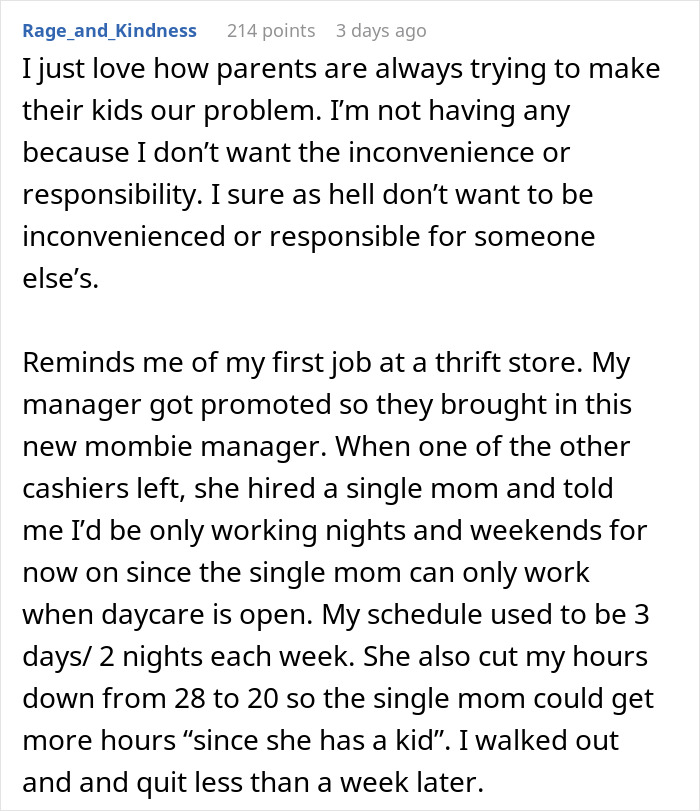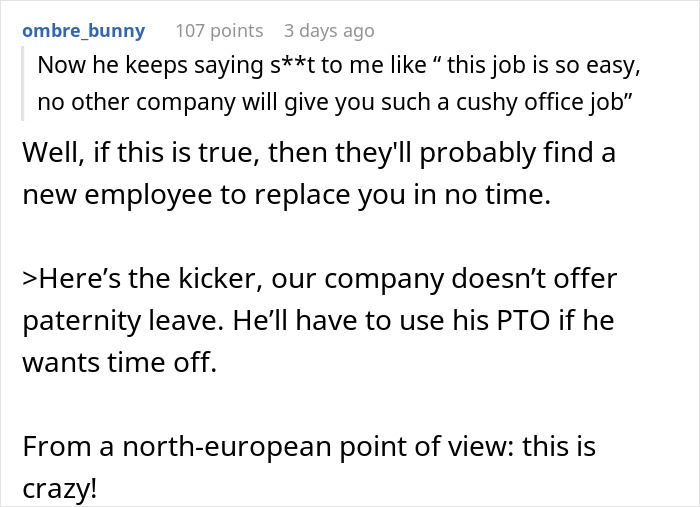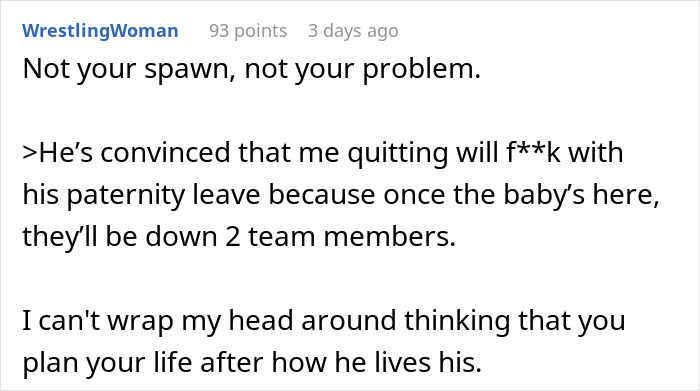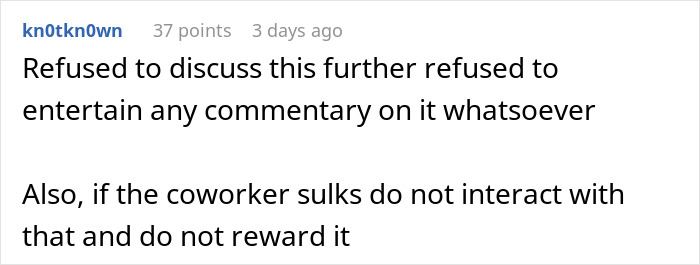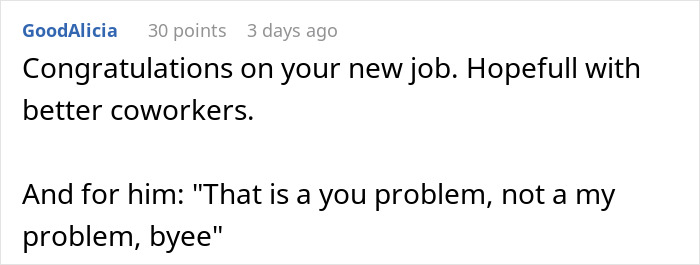For one reason or another, employees tend to find themselves on the brink of quitting – a decision that is personal and usually based on their own well-being.
However, some people believe that others should base their decision to (not) quit according to what’s best for them. Take this redditor’s co-worker, for instance: when he—a soon-to-be dad—learned that the OP was quitting, he was mad that it would interfere with his paternity leave; and he made sure to let her know. But the OP said that none of that was her problem.
Sooner or later, many people find themselves on the brink of quitting their job

Image credits: Rob Lambert / unsplash (not the actual photo)
This woman decided to quit her job, but her soon-to-be-dad co-worker didn’t take it well
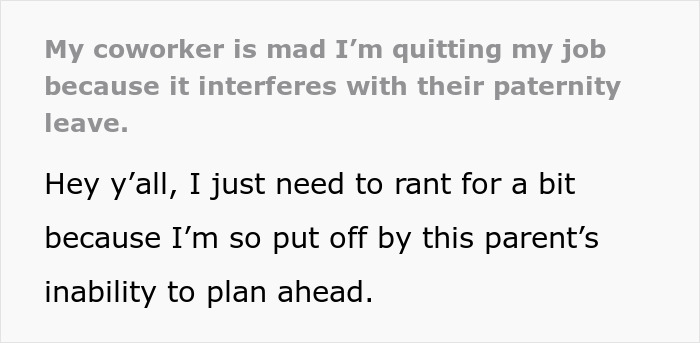
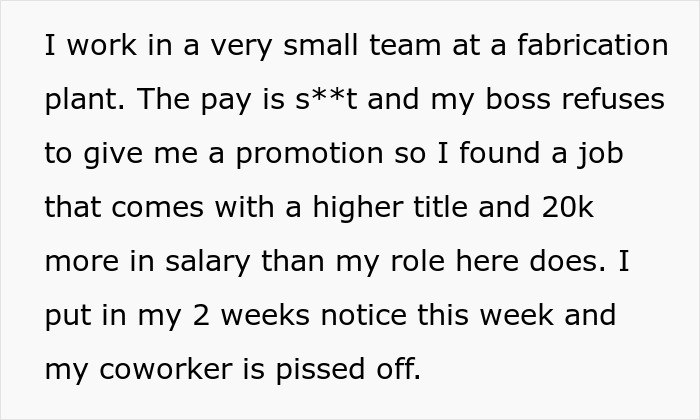
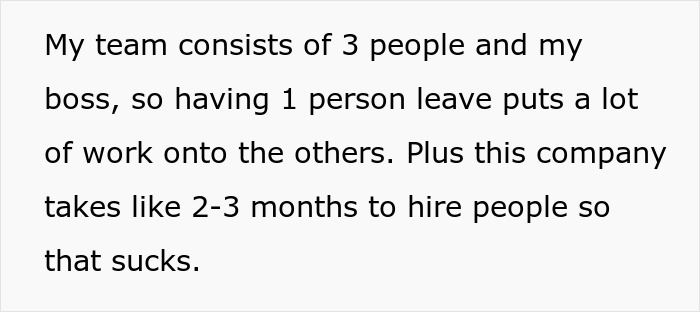
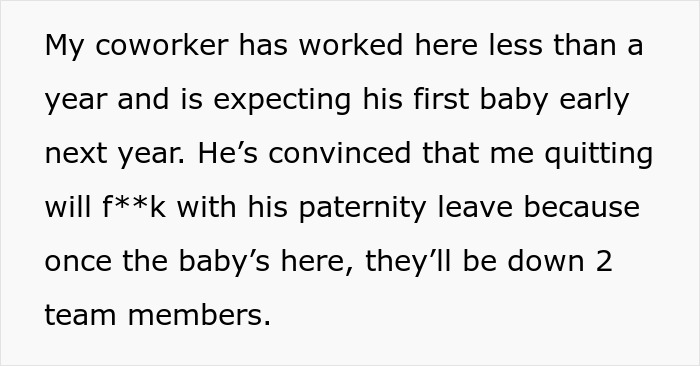
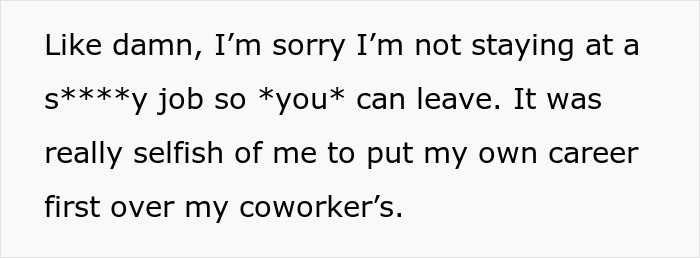

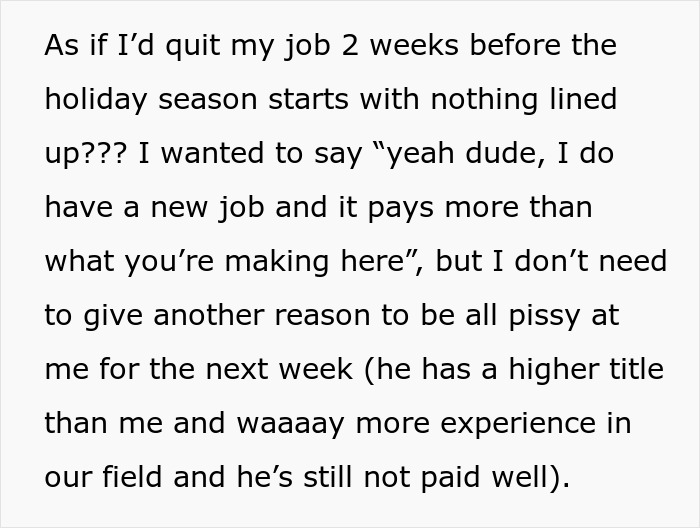
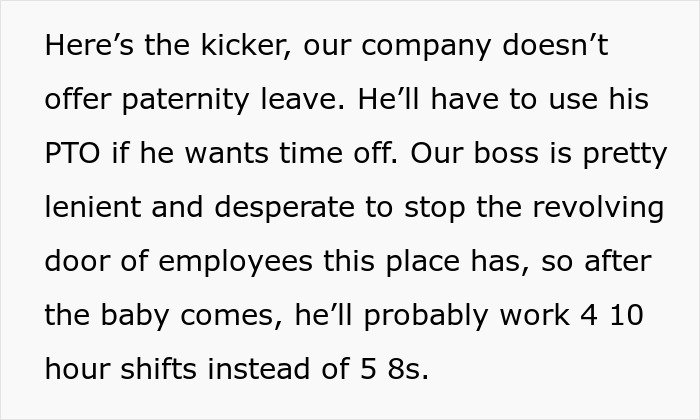

Image credits: MART PRODUCTION / pexels (not the actual photo)

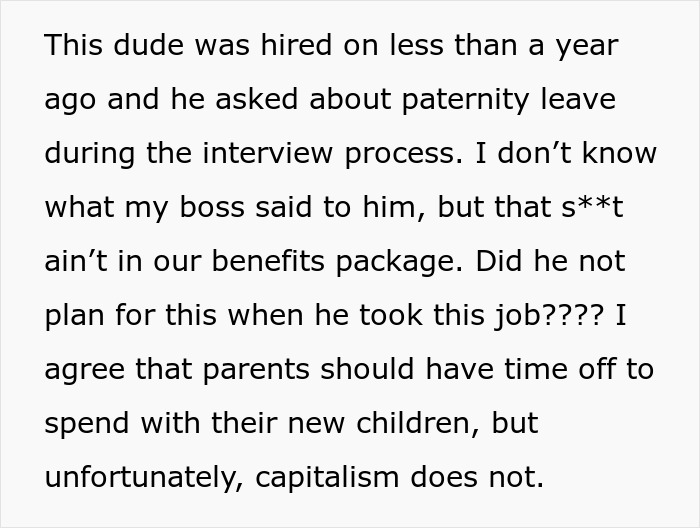
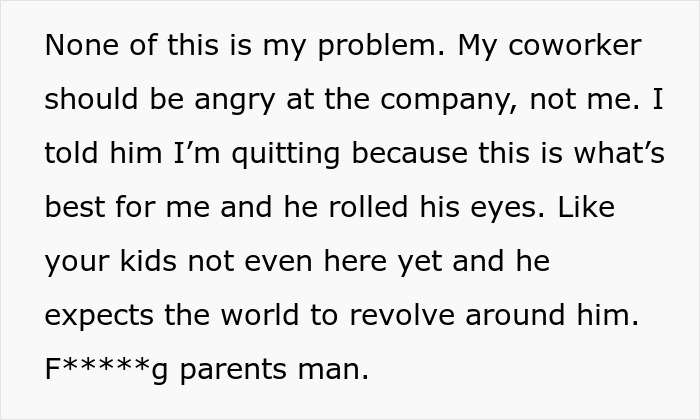
Image credits: MotherSlice
“Career decisions should prioritize personal goals and well-being over the potential impact on colleagues,” expert says
People might want to change jobs for many reasons, but their reasons shouldn’t be focused on the well-being of others; their co-workers, for instance. ”Career decisions should prioritize personal goals and well-being over the potential impact on colleagues,” Dr. Jon Gruda, an expert in organizational behavior, told Bored Panda in a recent interview.
“Staying in a role out of guilt only shifts attention away from organizational shortcomings, such as inadequate paternity leave policies. While transparent communication is important, individuals must prioritize their long-term growth and satisfaction,” he said.
Discussing shortcomings regarding paternity leave, the expert suggested that paternity leave should be a universal right, but many companies fail to provide it, often because legislation doesn’t require them to. “Without formal policies, employees are forced to rely on informal arrangements which can strain team dynamics. These tensions highlight the need for formal policies that support employees during major life transitions.”
It’s not uncommon for employees with and without children to face different expectations
The OP shared that the company she was about to leave doesn’t offer paternity leave. That meant her parent-to-be co-worker was forced to rely on informal arrangements or use his PTO after the baby was born. It’s safe to assume that that is more difficult to do when the team shrinks from four to three; hence his reaction to the OP quitting. But the woman didn’t think her co-worker’s situation was her problem and expressed disdain for parents who believe that the world should revolve around them.
While it’s not always the case, employees with children are often viewed or treated differently than child-free individuals. For instance, they might not be asked to work overtime, as “they have to go home and be with the family,” or even receive special treatment, often because of assumptions about one’s availability linked to their family status.
“Employees with children often face different expectations than those without, with the latter frequently taking on more overtime or inconvenient shifts. Such biases reflect outdated norms and create workplace inequities. Fair policies should recognize all employees’ personal commitments and distribute workloads without assumptions about availability,” Dr. Gruda noted.
On average, people reportedly change their jobs every two years and nine months
Whether their co-workers like it or not, people in companies will come and go, as the days of sticking with the same company for decades seem to be behind us. According to a survey carried out by Career Sidekick, on average, people change their jobs every 2.73 years – approximately every two years and nine months.
The survey found that roughly four in ten employed individuals say their goodbyes every one to two years, nearly a third change jobs every four years or more, and just over a fifth do that every three years. According to the aforementioned survey, though, roughly 4% of employees change their jobs once a year. But there are people who dive head first into change even more often than once a year – the Pew Research Center suggests that (as of 2019-2022) roughly 2-3% of employees (in the US), change employers every month.
The Pew Research Center found that 2022 was arguably one of the best times for people to change jobs, especially if they were looking for a raise. Data reveals that during the period between April 2021 and March 2022, roughly 60% of workers switching jobs “saw an increase in their real earnings over the same month the previous year,” reportedly, despite a surge in the rate of inflation. Out of those who stayed with their employer, only 47% experienced an increase in real earnings.
Seeing that there’s no promotion or increase in salary on the horizon, the OP, too, decided to change jobs and opted for a place offering higher pay. She didn’t let her co-worker’s animosity change her mind, and fellow netizens in the comments assured her that she shouldn’t. They suggested it was the employer’s problem and congratulated her on moving on to a hopefully better one.
The woman provided more details in the comments


Fellow netizens shared their thoughts and congratulated the woman on her new job



